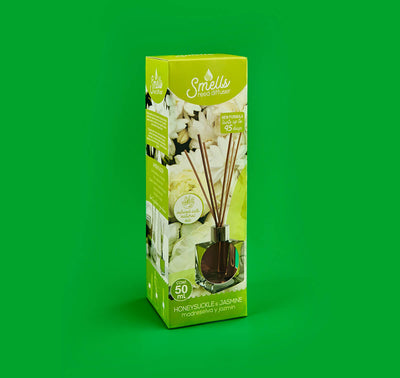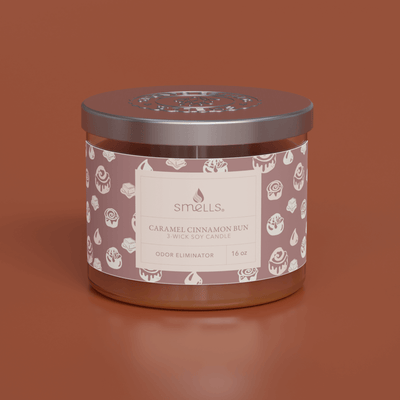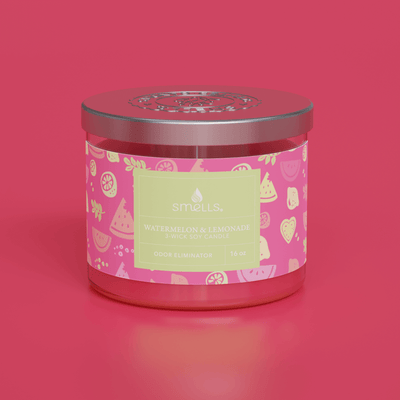The Power of Smell and Fragrances on Memory and Emotion
From the comforting scent of freshly baked cookies to the invigorating aroma of a pine forest, fragrances possess a remarkable ability to transport us through time and emotion. The scent-memory connection is a phenomenon that has fascinated scientists, artists, and thinkers for centuries.
In this exploration, we delve into the captivating world of scent-related memory retrieval, where the olfactory senses intertwine with our recollections to create a tapestry of emotions and experiences. Join us as we unravel the mysteries of scent memory and its profound impact on our lives.

Table of Contents
The Connection Between Fragrances and The Mind
Close your eyes for a moment and think about a specific place or moment from your past. Now, imagine being able to revisit that memory with all its intricate details, emotions, and sensations simply by inhaling a familiar scent. This extraordinary ability is rooted in the way our brains process scents.
The olfactory bulb, the region of the brain responsible for processing smells, has an intimate connection with the limbic system, often referred to as the emotional brain. This proximity plays a significant role in the strong link between fragrances and emotions. When we encounter a scent, it can trigger the retrieval of memories and associated emotions with astonishing clarity.
Imagine catching a whiff of a certain perfume that your grandmother used to wear. Suddenly, you're transported back to her cozy living room, surrounded by the warmth of her embrace. The scent of her perfume becomes a portal to a time when you felt safe, loved, and cared for. This is the magic of scent-related memory retrieval in action.
The Psychological Importance of Scent in Memory Recognition
Our ancestors relied on their olfactory senses to survive. The ability to detect the scent of predators, identify ripe fruits, and recognize kin played a crucial role in their daily lives. This evolutionary history is embedded in our brains, shaping the way we perceive and react to scents today.
Studies have shown that scent-memory associations are not just sensory experiences; they're psychological phenomena deeply rooted in our survival mechanisms. When we encounter a specific fragrance, our brain cross-references it with stored memories and emotions. If the brain detects a match, the associated memories and emotions are brought to the forefront of our consciousness.
This explains why the scent of a particular flower might transport you to a childhood garden or why the aroma of a specific dish can remind you of cherished family gatherings. Scent memory recognition goes beyond mere nostalgia; it's a window into our past experiences that has a significant impact on how we perceive the present.
Are Some Fragrances More Powerful Than Others?
Not all fragrances are created equal when it comes to triggering memories. Some scents possess a unique potency that can instantly transport us to moments of our lives we thought were long forgotten. The intensity of these associations is influenced by various factors, including the emotional significance of the memory, the strength of the scent, and the context in which the scent was first encountered.
For instance, the scent of a particular flower that bloomed during a significant life event might evoke vivid memories of that occasion. Similarly, the aroma of a familiar dish can bring back a rush of memories associated with family gatherings and joyful conversations.

Harnessing the Power of Scent
The realization that scents possess the key to unlocking a treasure trove of memories and emotions has not gone unnoticed by industries and businesses. From marketing to wellness, the power of scent is harnessed to create experiences that leave a lasting impact.
In the world of marketing, scents are strategically employed to enhance brand recognition and customer experiences. Have you ever walked into a store and been greeted by a familiar scent that instantly reminds you of a particular brand? This is no accident. Retailers often use signature scents to create a unique atmosphere that resonates with customers and builds a stronger brand connection. The scent itself becomes a memory trigger, reminding customers of their positive experiences within that space.
Beyond the realm of retail, the wellness industry has embraced the therapeutic potential of scents. Aromatherapy, a practice that involves using essential oils to promote physical and emotional well-being, relies on the power of scents to induce relaxation, reduce stress, and improve mood. Oils like lavender, known for their calming properties, are commonly used to create a sense of tranquility and ease.
Final Thoughts
In the tapestry of human experience, scents are the threads that weave memories, emotions, and connections. From the subtlest aroma to the most potent fragrance, each scent carries with it a story waiting to be told. As we continue to explore the intricate dance between fragrances and memories, let us embrace the power of scents to awaken our senses, evoke our past, and shape our present.
At SmellsCandle.com, we believe in the power of scents to elevate your daily life. Whether you're seeking the soothing embrace of lavender, the invigorating notes of citrus, or the nostalgic aroma of the ocean, our curated collection has something for everyone.
FAQ
What is it called when a smell triggers a memory?
The phenomenon you're experiencing is known as the "Proustian Phenomenon" or the "Proust Effect." It refers to the ability of scents to evoke memories and emotions with remarkable clarity.
Why do I remember smells?
Your olfactory bulb, responsible for processing scents, is intricately connected to the limbic system, the emotional center of your brain. This connection is why scents have the power to trigger strong emotional memories.
How long does smell memory last?
Smell memories can endure for quite a while. They can span years, although the exact duration varies based on factors such as the emotional intensity of the memory and the frequency of exposure to the scent.
Articles you may love
Addressing Safety and Health Concerns about Reed Diffusers










Leave a comment